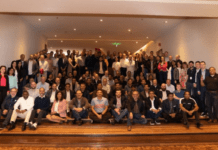The comfort zone is a haven for many individuals who like to play it safe, and more than often they find themselves in a rut. With time, this becomes a habit with insecurity, procrastination and dissatisfaction beginning to set in for them and curbing growth.
Of course, it differs on an individual basis, but the outcome is the same — one is stuck watering the same patch of grass on which one stands. While being comfortable is not a bad thing, it does not leave much room for personal growth or the ability to attain higher goals.
Fear factor
For many, anxiety and the fear of the unknown often holds them back from performing their best. As Kaustubh Sonalkar, group director – human capital management (HCM), general affairs, CSR and Corporate Communications, Welspun Group, puts it, “Fear is something that will always get one into trouble and if one believes one is scared of something, one is fearful. One will always be under psychological pressure and also be scared of things, never putting one’s best foot forward.” Whether it is the fear of making mistakes or being too comfortable with one’s routine, either way, growth is hindered.
“Fear is something that will always get one into trouble. If one believes one is scared of something, one is fearful of putting one’s best foot forward.”
Kaustubh Sonalkar, group director – group director- human capital management (HCM), General Affairs, CSR and Corporate Communication at Welspun Group
Abhijit Bhaduri, Indian author, columnist and management consultant, throws light on what holds back a person from setting a foot out of the zone of comfort. “One of the reasons is that the goal is not set properly — ‘it’s too difficult’, so the goal must be something which requires a little bit of stretch and a little bit of effort beyond one’s comfort zone.”
This is well explained by the Yerkes-Dodson’s Law, where the ‘comfort zone’ was conceptualised by psychologists Robert M Yerkes and John D Dodson, in 1908. The Law linked arousal to stress and motivation, and gave body to the sense of comfort being generated with a static level of performance.
A healthy dose of stress is essential to push people out of their comfort zones and boost their productivity. For instance, chalking out a fitness regime over a span of several weeks is healthier than going for a crash course on becoming fit in under 30 days. The latter will be harder and demotivating, which will inevitably make a person shrink back to her/his comfort zone.
“The goal must be such that it requires a little bit of a stretch and some effort beyond one’s comfort zone.”
Abhijit Bhaduri, author, columnist and management consultant
Erroneous zone
“Not taking a risk is the biggest risk that one can take for their own career. Every individual should ask themselves this question, ‘what value are they adding to the organisation?’” remarks Girish Menon, head – HR, Swiggy.
Organisations also play a pivotal role in inculcating a culture where taking risks is celebrated rather than shunned. While the tolerance is low for goofing up in the operational aspect of an organisation, it will be more welcomed for the ‘needle-moving’ activities. Organisations have to be proactive in coaxing their employees to innovate and be tolerant of them making mistakes. Only then can employees actively think of getting out of their comfort zone, which will pave the way for creativity and innovation outside of the circle of the comfort zone.
“It is very important to compartmentalise in one’s own head that one holds a very high bar on making zero errors in operating activities, while being a bit easy with oneself in thinking areas /innovation areas (needle-moving activities),” suggests Menon. This is a good way to bank on the good stress and avoid being caught up in higher, unhealthier doses of stress with the bar-setting equal for either activities.
“Not taking a risk is the biggest risk that one can take for their own career.”
Girish Menon, head-HR, Swiggy
This does not imply that the comfortable ones do not grow. They do, but the growth is slower as compared to the risk takers who are more curious, thrive on trying new things and expanding their horizons. And yes, they do not, time and again, fret over crossing their comfort zone.
A good way for both the risk-takers and the overly comfortable is to ask managers in charge to integrate employees into other team projects, provided they are performing their required tasks well, advices Bhaduri. This feeds curiosity, opens up more avenues for self-development and in some cases helps employees realise their unrealised potential. The employees can also ask their supervisors to assign them to newer tasks, to keep things exciting and allow themselves to explore beyond what is traditionally comfortable.
Sometimes, it is the talent and the organisation that are a mismatch for each other. Individuals, especially in today’s times, know what they want. If their values do not align with those of the organisation, they remain at odds with each other.
“The most important factor is that, anybody who is being comfortable (at their workplace) is being absolutely comfortable about their ability to deliver with particular knowledge or skill,” says Sonalkar. To some extent, HR is the enabler, not the influencer that acts as the bridge between the employees and the organisation. Not being able to adapt to the organisational values is a big sign for the employees that they either need to pull their up socks or it’s time for them to find something else that aligns with their career goals and personal values.
Value our content... contribute towards our growth. Even a small contribution a month would be of great help for us.
Since eight years, we have been serving the industry through daily news and stories. Our content is free for all and we plan to keep it that way.
Support HRKatha. Pay Here (All it takes is a minute)







































